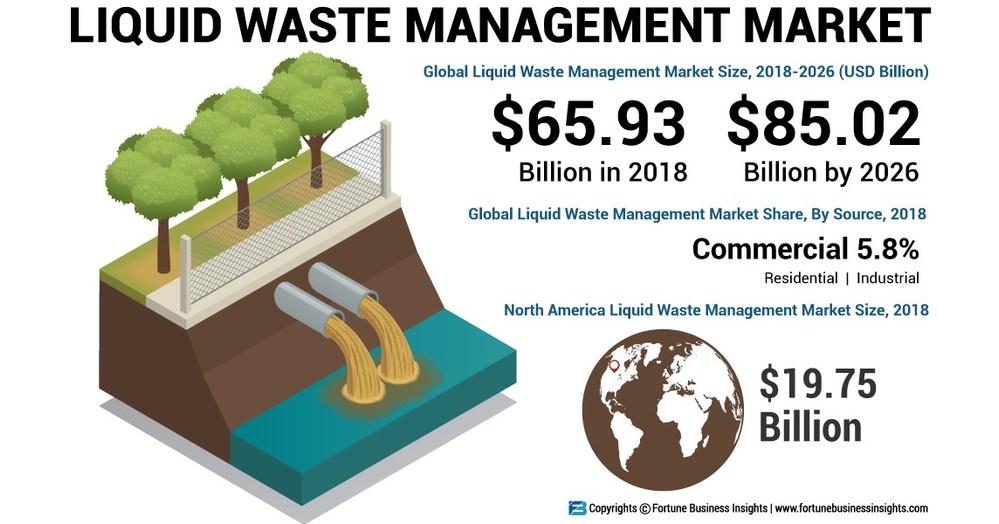Getting The Reclaim Waste To Work
Getting The Reclaim Waste To Work
Blog Article
The 5-Second Trick For Reclaim Waste
Table of ContentsReclaim Waste Can Be Fun For EveryoneThe Facts About Reclaim Waste UncoveredReclaim Waste Fundamentals ExplainedNot known Details About Reclaim Waste Not known Details About Reclaim Waste
Discover the types, occurrences, and types of liquid waste. Residential sewage waste refers to the waste and items from a household sewage-disposal tank. This kind of waste is developed by human beings in homes, schools, and other buildings. This only consists of septic storage tanks that have a drain area. The correct monitoring and disposal of domestic sewer waste require fluid waste to be transferred to a sewer treatment plant where the appropriate methods and devices are applied to cleanse and dispose of waste.
Industrial waste often includes possible hazards, such as flammable products or a mix of fluid and strong waste products, and requires a much more sophisticated and comprehensive disposal procedure. The disposal of commercial waste normally involves the filtration of waste before transport to make certain safe and appropriate disposal. Hazardous waste is developed from results and drainage of industrial processes and production.
This type of waste can not utilize the very same sewer management transportation or processes as septic or industrial liquids. The hazardous waste administration procedure calls for the examination and testing of liquid waste before it undergoes the disposal process (liquid waste disposal). Drainage waste is the fluid waste that originates from drainage and excess stormwater in very booming locations or cities
Drainage waste can create contamination and flooding otherwise taken care of properly. Find out more about sewer cleaning and waste management. Making sure appropriate waste administration can avoid catastrophes and decrease environmental injury. Both people in domestic setups and specialists in business or production industries can benefit from recognizing the procedures and guidelines of liquid waste management.
The Ultimate Guide To Reclaim Waste
Call PROS Services today to find out about our waste monitoring and disposal services and the appropriate ways to take care of the fluid waste you produce.
(https://boom-fruit-496.notion.site/Industrial-Wastewater-Treatment-The-Key-to-a-Cleaner-Greener-Future-13c9fdbb2e9380eca32fee3a79088ddf?pvs=4)Do you understand what happens to your water when you pull the plug, purge the bathroom or drain the cleaning device? No? Well, it deserves recognizing. This so-called 'wastewater' is not just an essential resource yet, after therapy, will be launched to our land, waterways or the sea. Utilized water from commodes, showers, baths, kitchen sinks, washings and industrial procedures is referred to as wastewater.

water utilized to cool machinery or tidy plant and tools). Stormwater, a form of wastewater, is drainage that flows from agricultural and urban areas such as roofs, parks, yards, roadways, paths and seamless gutters into stormwater drains, after rain. Stormwater streams neglected straight to neighborhood creeks or rivers, eventually getting to the ocean.
9 Easy Facts About Reclaim Waste Shown
In Queensland, a lot of wastewater is dealt with at sewer treatment plants. Wastewater is carried from residential or commercial sites with a system of sewage systems and pump terminals, called sewerage reticulation, to a sewage therapy plant. Local governments build, preserve and operate most sewage treatment plants. Operators are licensed under the Environmental Protection Act 1994 to discharge treated wastewater at an acceptable environmental standard into waterways.
The Division of Natural Resources advises neighborhood governments concerning handling, operating and preserving sewerage systems and treatment plants. In unsewered locations, city governments may need householders to mount specific or family sewage treatment systems to deal with residential wastewater from bathrooms, kitchen areas, restrooms and laundries. The Division of Natural Resources authorises the use of household systems when they are confirmed to be efficient.
In some brand-new class, treatment of some stormwater to get rid of trash, sand and crushed rock has begun utilizing gross pollutant catches. Wastewater treatment occurs in 4 stages: Eliminates strong matter.
Makes use of small living microorganisms recognizes as micro-organisms to damage down and get rid of remaining dissolved wastes and great fragments. Micro-organisms and wastes are integrated in the sludge.
The 9-Minute Rule for Reclaim Waste
Nutrient removal is not offered at all sewer therapy plants due to the fact that it calls for expensive specialised tools. Clear liquid effluent generated after treatment may still have disease-causing micro-organisms - industrial wastewater treatment.

This typically indicates wastewater needs to be treated or contaminants eliminated before it can be discharged to rivers. Many wastewater moves into the sewerage system. Under the Act, city governments provide approvals and licences for ecologically pertinent tasks (Periods) entailing wastewater releases that could have a neighborhood effect. The division provides authorizations and licences to ERAs entailing wastewater launches that could have a local or statewide effect.
What Does Reclaim Waste Mean?
Otherwise, samples are taken for lab evaluation. Frequently lots of examinations are needed to develop the levels of each of the different toxins such as oils, heavy steels and chemicals in water. Monitoring supplies factual details regarding water quality and can verify that permit conditions are being satisfied. The info acquired via surveillance provides the basis for making water top quality choices.
Report this page